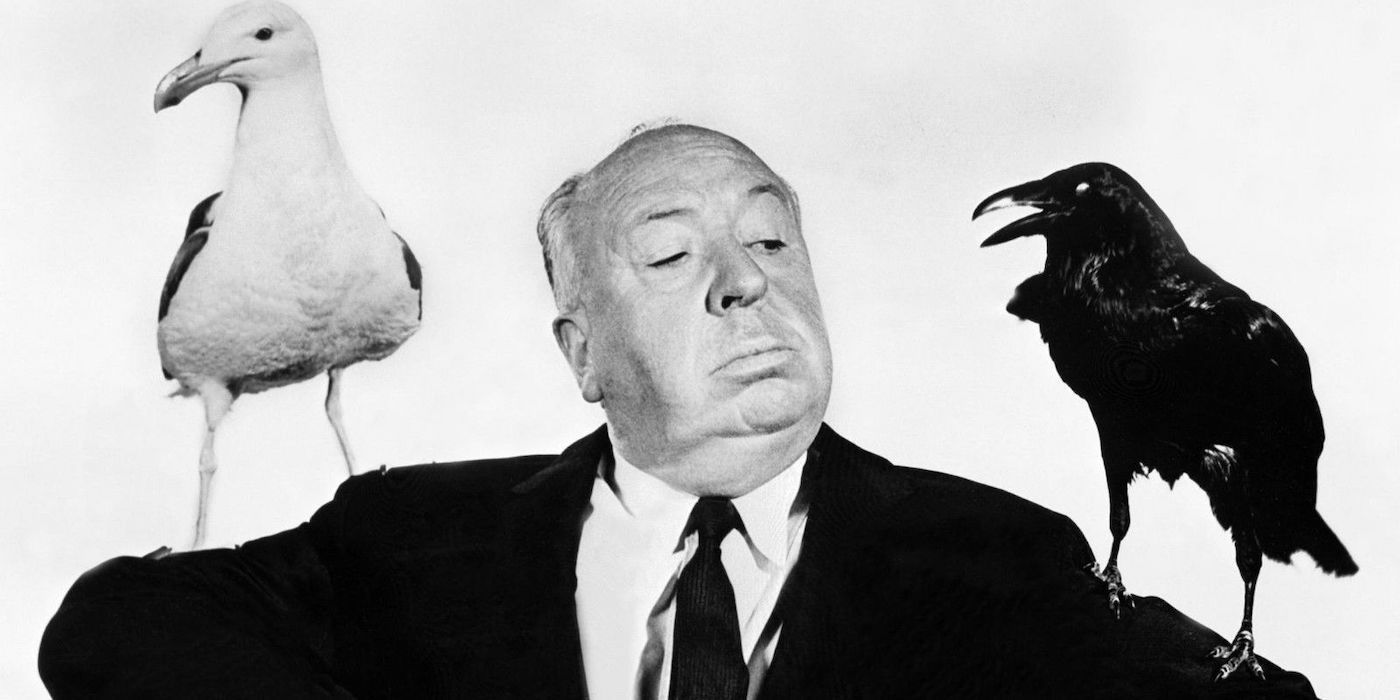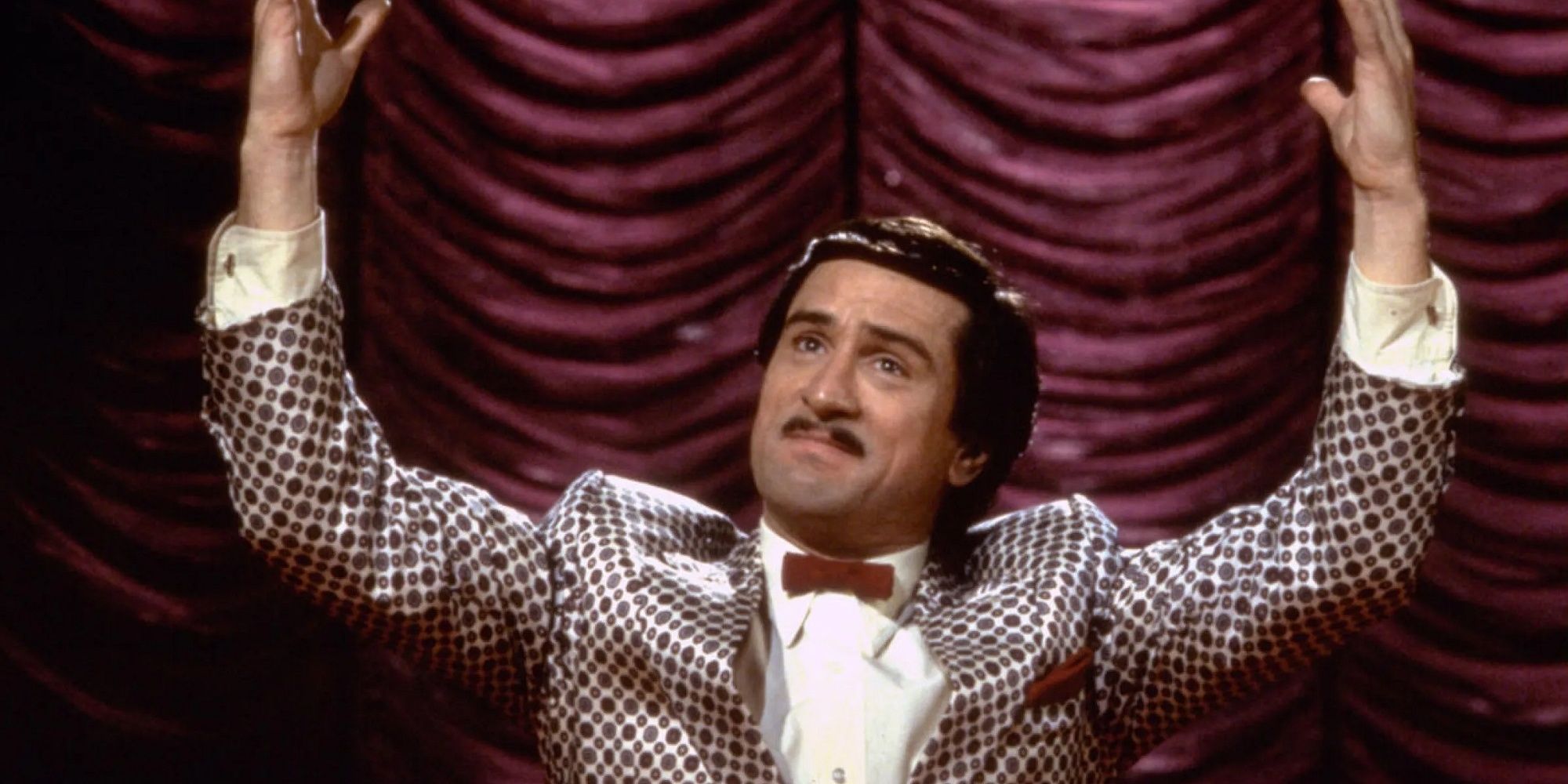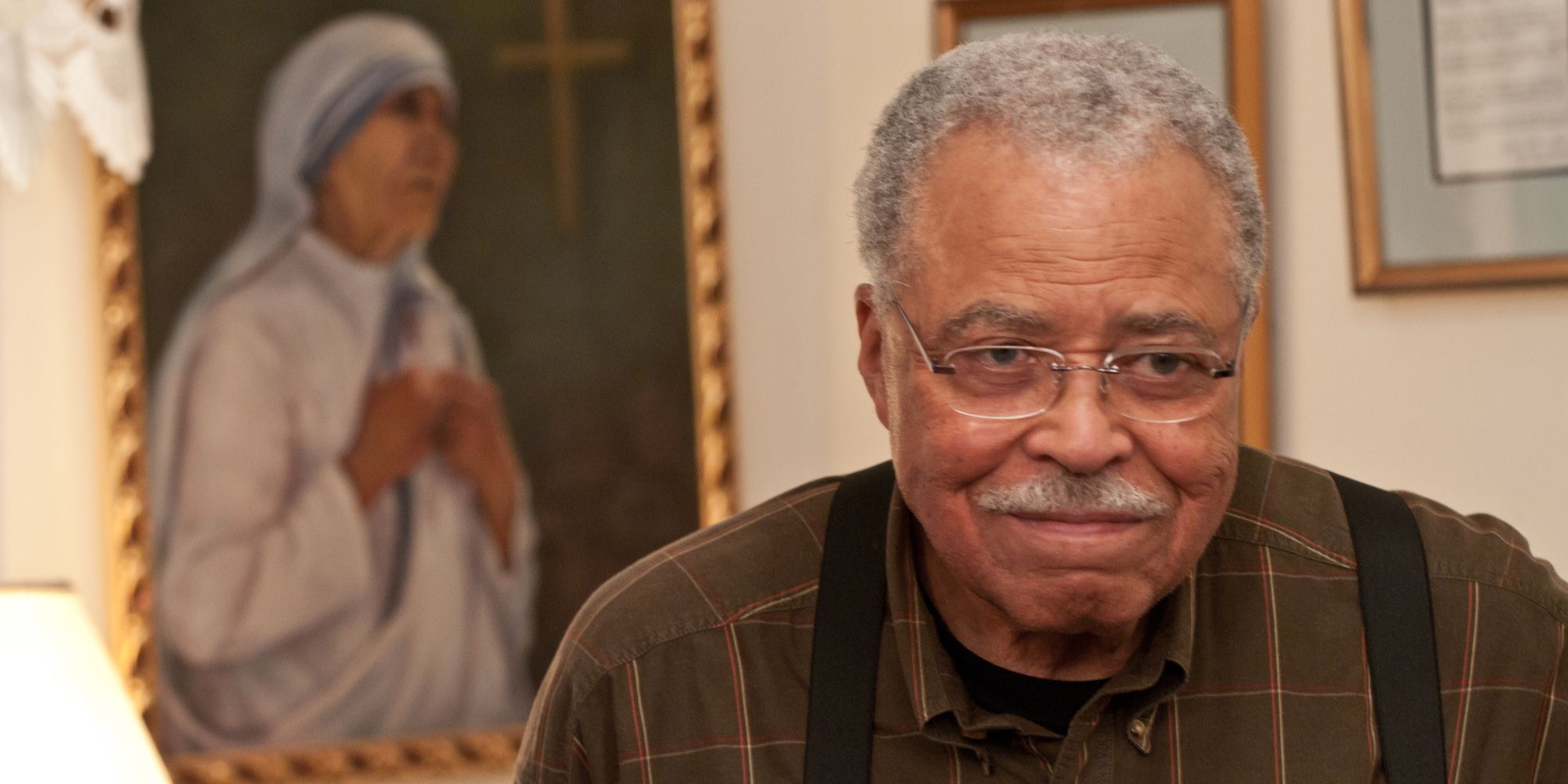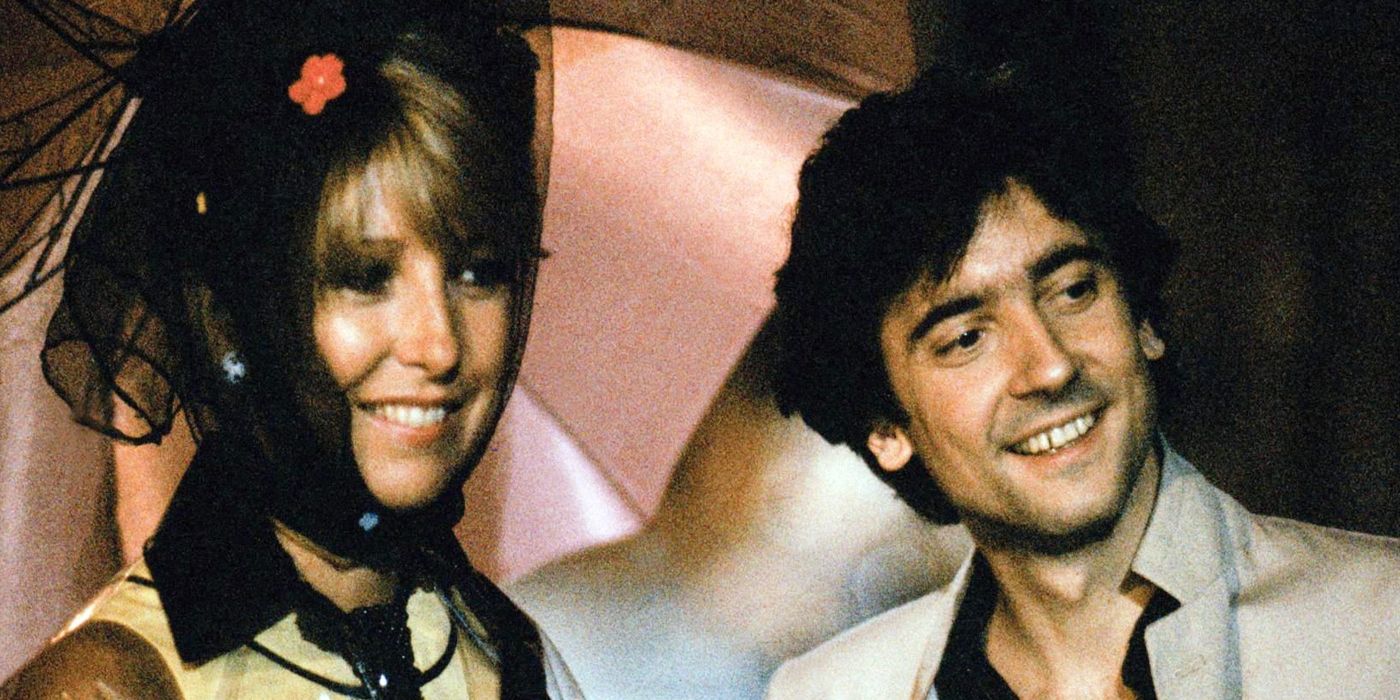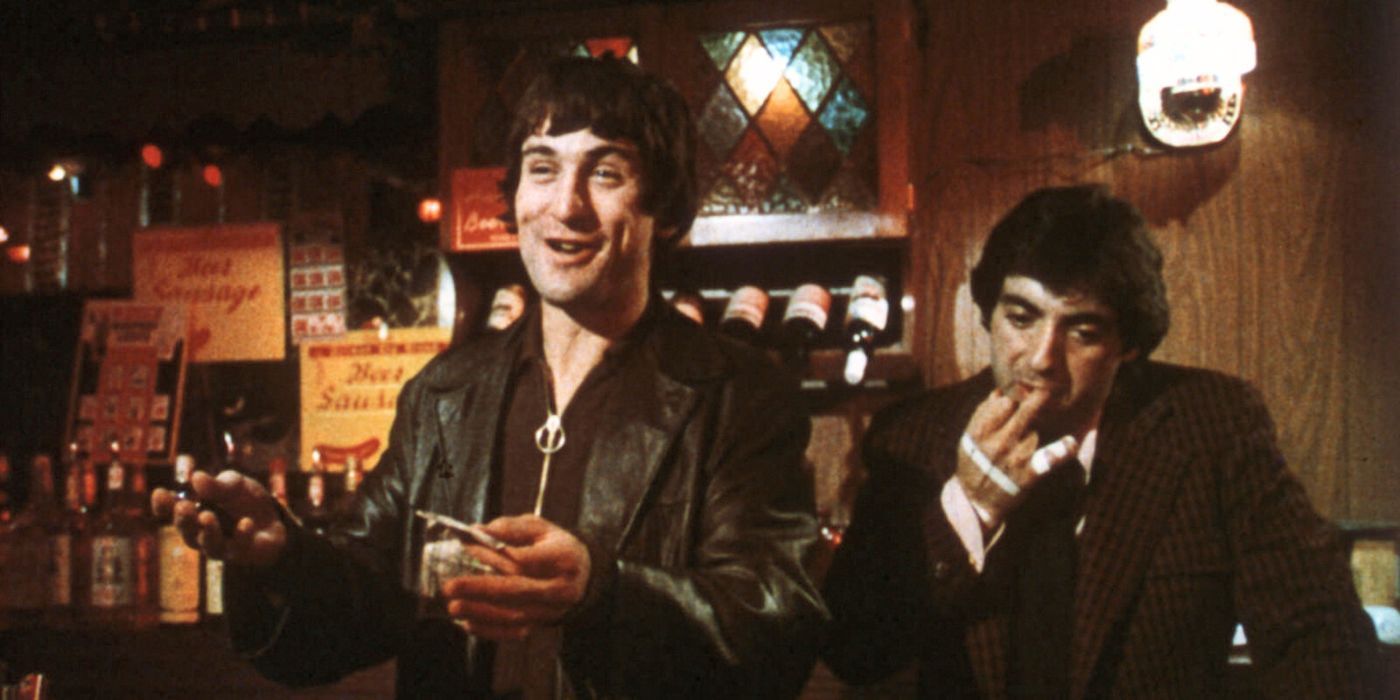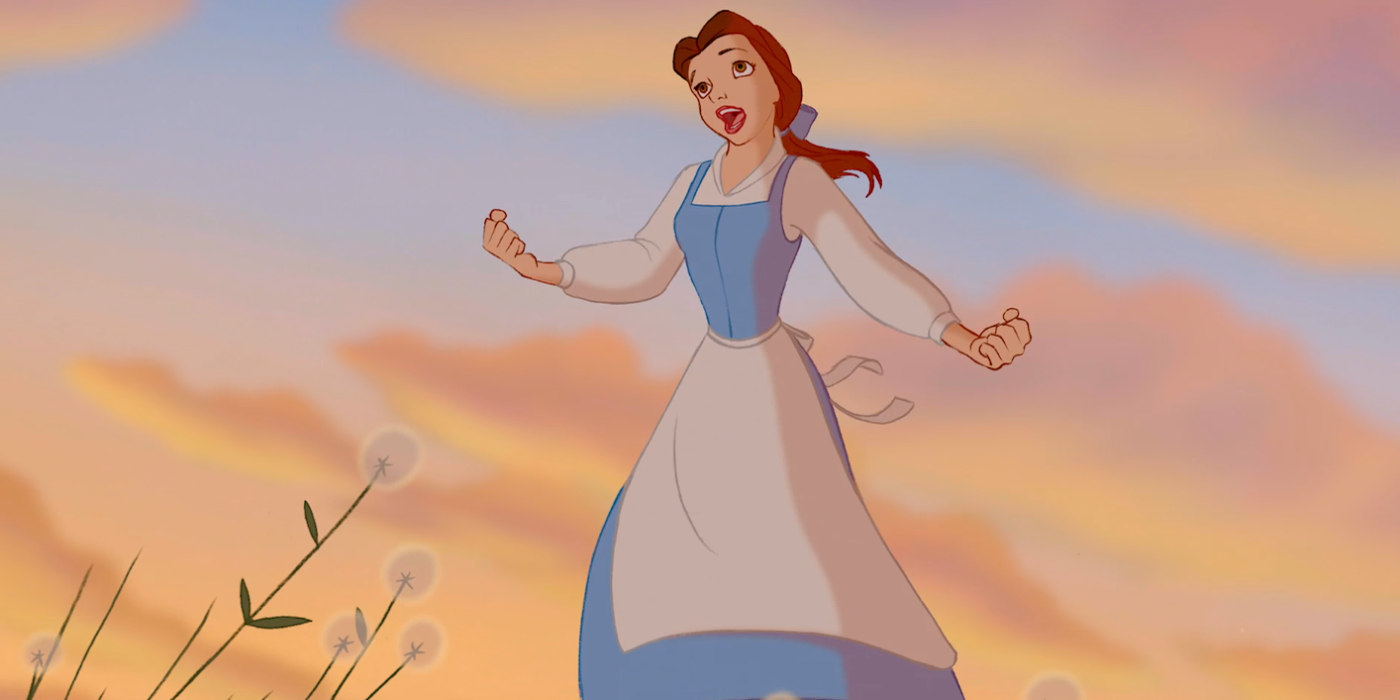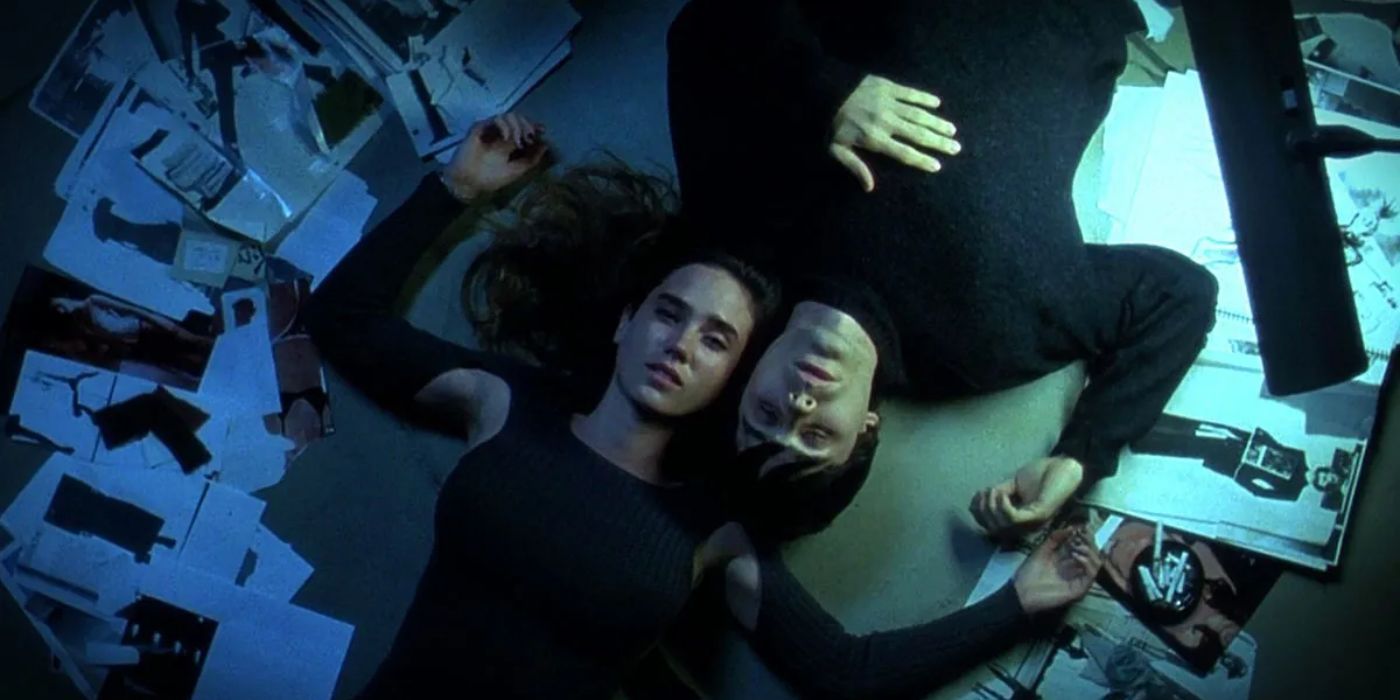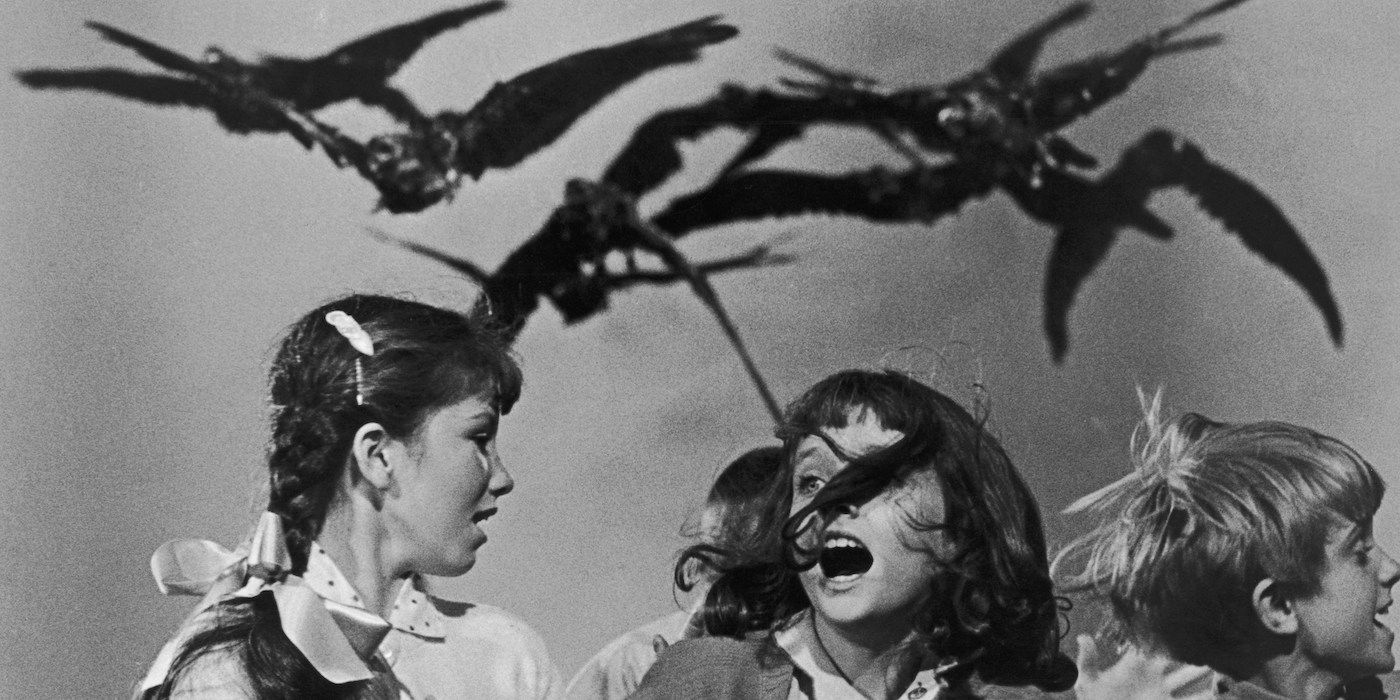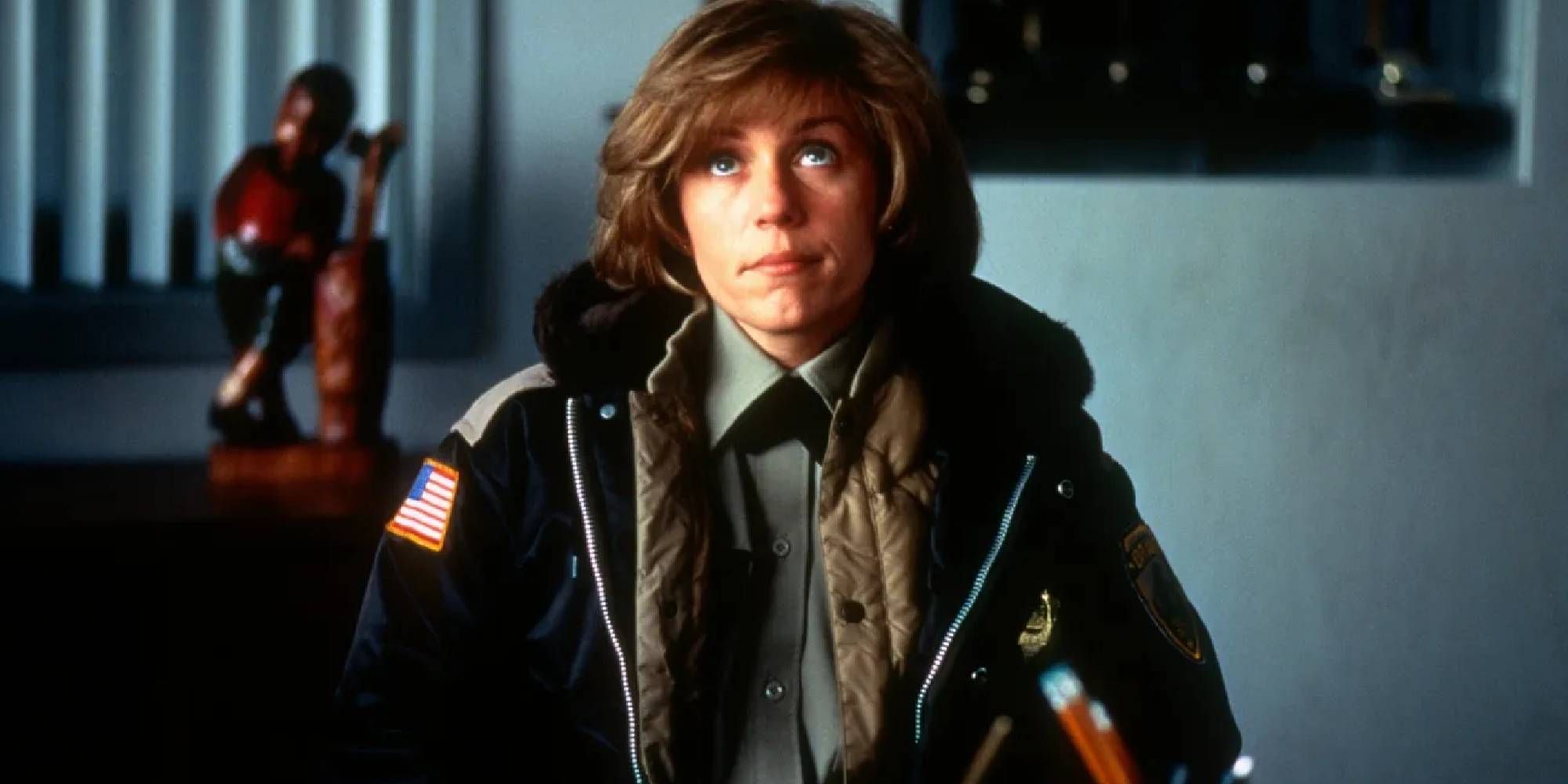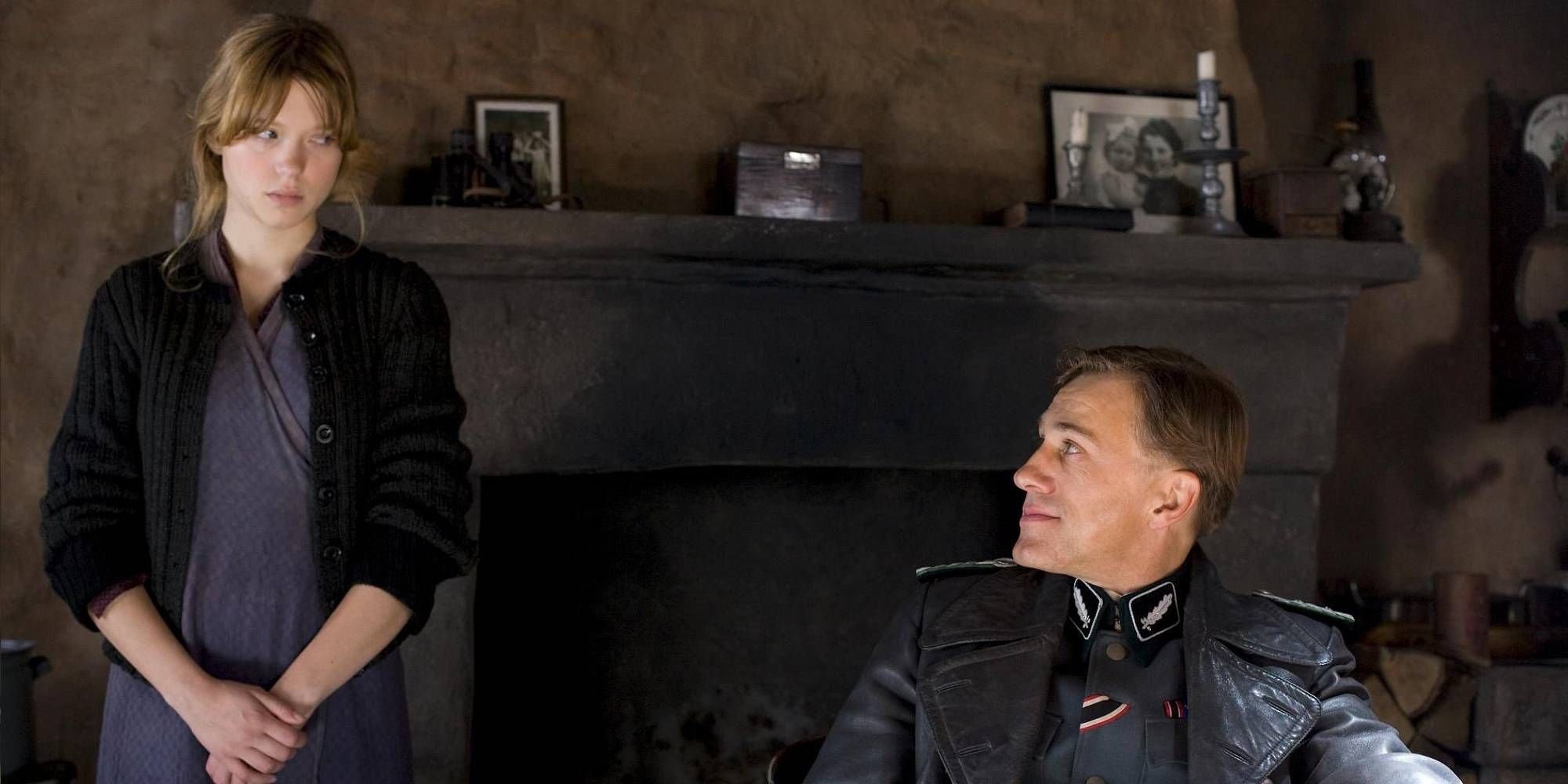If there was any competitor for the biggest movie event of the year, the Cannes Film Festival gives the Academy Awards a run for its money. Founded in 1946, the annual adventure on the French Riviera is one of the most celebrated and important film festivals in the world. The festival's quiet roots as a vehicle for European cinema slowly developed into a monolithic event of summer blockbusters, Oscar hopefuls, and world cinema treasures.
As the festival gained stature, the lineups expanded with them. What began as a selection of 45 films in competition morphed into the official selections of In Competition, Out of Competition, and Un Certain Regard (movies of originality), plus parallel selections of Critics Week (debut and sophomore features) and Directors' Fortnight (an avant-garde breeding ground for the official selection). With 77 festivals to choose from, here are the 10 Best Cannes Film Festival Lineups.
10 1983
Lineup includes: 'The King of Comedy,' 'Nostalghia,' and 'L'Argent'
1983 was a transition year on the Croisette. The festival showcased films in the Palais des Festivals et des Congres (nicknamed The Bunker) for the first time, and the attitudes at cinema's commercial potential were frivolous at best. Martin Scorsese's The King of Comedy, which flopped at the box office but is now viewed as one of his underrated masterpieces, opened the festival in competition. Scorsese had to go up against Carmen from Spanish auteur Carlos Saura, Merchant Ivory's breakout Heat and Dust, Nagisa Oshima's English-language Merry Christmas Mr. Lawrence, and Peter Weir's The Year of Living Dangerously. Fans of David Bowie got a chance to see him again in Tony Scott's cult hit The Hunger out of competition plus the blockbuster thriller WarGames as the closing film.
If there was any memorable moment to mention, it's the awards ceremony. While the Palme d'Or was awarded to Japanese New Wave director Shohei Imamura for his film The Ballad of Narayama, Jury President William Styron admitted that Monty Python's The Meaning of Life had the most support from the jury, winning the Grand Prix as runner-up, which is to date the only film from a sketch comedy troupe to be awarded at Cannes. The most iconic moment, however, was Orson Welles announcing the Best Director award to Robert Bresson for L'Argent, and Andrei Tarkovsky for Nostalghia, with a snapshot picture of the three legends together on stage. 1983 was not a sexy lineup, but it was a perfect blend of the art classics and commercial films that Cannes is now known for.
9 1971
Lineup include: 'Gimme Shelter,' 'THX 1138,' 'The Panic in Needle Park'
Cannes was slow to embrace Hollywood in the festival for a number of years. No American film had won the Palme d'Or for 11 years until Robert Altman's MASH won in 1970. For a film that bawdy and reckless, to win a prestigious prize showed that all bets were off. Anything goes now at Cannes. The Maysles Brothers and Charlotte Zwerin's Gimme Shelter opened out of competition, diving into the Rolling Stones' infamous 1969 US tour and Altamont Free Concert. In competition was a collection of frank political and societal films across the spectrum, including Luchino Visconti's Death in Venice, Jack Nicholson's Drive, He Said, Louis Malle's Murmur of the Heart, Jerry Schatzberg's The Panic in Needle Park, and Nicolas Roeg's Walkabout. Directors Fortnight featured the equally thematic films THX 1138 by George Lucas, The Ceremony by Oshima, and Barbara Loden's Wanda.
Tying for the Grand Prix was Dalton Trumbo's Johnny Got His Gun and Milos Forman's Taking Off. Trumbo was one of the Hollywood Ten who were blacklisted by the House of Un-American Activities Committee as part of the Second Red Scare and subsequently broke the blacklist by getting screen credit for Spartacus. Taking Off was Forman's landing in America after a successful career in Czechoslovakia and set the groundwork for Forman to direct One Flew Over the Cuckoo's Nest. The Go-Between by Joseph Losey was awarded the Palme d'Or and marked the high point of the American expat's career. The lineup pushed Cannes into a new era of programming, unafraid to show films about topical issues three years removed from the May 1968 protests.
8 1986
Lineup include: 'After Hours,' 'The Sacrifice,' 'Hannah and Her Sisters'
1986, in a nutshell, was a changing of the guard. A hand off from the old to the new. In competition, you had established titans: Scorsese's wacky thriller After Hours, Altman's underappreciated Fool for Love, and Andrei Konchalovsky's Runaway Train, mixed in with some new blood in the form of Jim Jarmusch's Down by Law and Neil Jordan's Mona Lisa. The out of competition selection featured Steven Spielberg's The Color Purple, Woody Allen's Hannah and Her Sisters, and footage from Welles' unfinished Don Quixote. In the other sections, the new wave was hitting. Jane Campion showcased three short films and her debut feature Two Friends in the Un Certain Regard section. Alex Cox's Sid and Nancy, Lizzie Borden's Working Girls, and Spike Lee's seminal She's Gotta Have It all premiered on Directors' Fortnight.
But the talk of the festival was Tarkovsky's final film, The Sacrifice. Unable to attend due to lung cancer, there was an expectation that the film would win the Palme d'Or as a final triumph for the Russian auteur. However, jury president Sydney Pollack awarded it the second-place Grand Prix. Instead, the Palme d'Or went to Roland Joffe's The Mission, nowadays considered one of the more underwhelming films to win the award. The 1986 lineup may be top-heavy, but it's reputation as a transitory festival earns it a spot in the Top 10.
7 2017
Lineup includes: 'Twin Peaks: The Return,' 'The Florida Project,' 'Good Time'
The most recent festival on this list, 2017, was a crossroads for Cannes programming. For the first time in their history, streaming services had a significant presence at the festival. Todd Haynes' Wonderstruck and Lynne Ramsay's You Were Never Really Here were co-distributed by Amazon Studios, albeit with theatrical releases from Roadside Attractions and StudioCanal respectively. But the most controversy came from Netflix, who distributed Bong Joon-ho's Okja and Noah Baumbach's The Meyerowitz Stories with little theatrical release. Jury President Pedro Almodovar clashed with festival heads over the inclusion of Netflix, saying that films at Cannes should be on big screens, not online. Ironically, David Lynch's Twin Peaks: The Return premiered with little controversy despite being made for television.
A24 had a spectacular run, showcasing the Safdie Brothers' Good Time, Yorgos Lanthimos' The Killing of a Sacred Deer, and Sean Baker's The Florida Project. Yellowstone creator Taylor Sheridan showcased his feature debut Wind River in the Un Certain Regard section, Dave McCary (aka Emma Stone's husband) premiered Brigsby Bear at Critics Week, and Chloé Zhao and Claire Denis brought their films The Rider and Let the Sunshine In to Directors Fortnight. The two biggest winners were Sofia Coppola, who won Best Director for The Beguiled and became the second woman at the time to win the award, and Ruben Ostlund, whose film The Square won his first of two Palme d'Ors. When streamers began dominating the waves, Cannes' programming stood steadfast and committed to the theater experience, including enacting a rule that all films selected must have French distribution, thereby ending Netflix's future with the festival.
6 1974
Lineup includes: 'The Conversation,' 'Ali: Fear Eats the Soul,' and 'Mean Streets'
The years of 1974-75 are considered to be the peak years of the New Hollywood era. Cannes' lineup for the 1974 festival was representative of its popularity. Francis Ford Coppola's The Conversation, Hal Ashby's The Last Detail, Spielberg's The Sugarland Express, and Altman's Thieves Like Us premiered in competition, with Coppola winning the Palme d'Or for the first time. The Vietnam War documentary Hearts and Minds premiered as part of Critics Week and Scorsese's breakout film Mean Streets was part of Directors Fortnight.
That's not to say that it was a red, white, and blue festival (technically it is, since it's in France). Federico Fellini's sprawling comedy Amarcord opened the festival, while Rainer Werner Fassbinder's masterpiece Ali: Fear Eats the Soul, Alain Resnais' Stavisky (with music from Stephen Sondheim), and Pier Paolo Pasolini's Grand Prix winner Arabian Nights competed in competition. Bresson's Lancelot du Lac received an out of competition slot, while French New Wave auteur Jacques Rivette premiered his seminal work Celine and Julie Go Boating in Directors Fortnight and Victor Erice showed The Spirit of the Beehive in Critics Week. 1974 was Cannes' true acceptance Hollywood as equal competitors in world cinema. They haven't looked back since.
5 1992
Lineup includes: 'Reservoir Dogs,' 'Twin Peaks: Fire Walk with Me,' and 'Beauty and the Beast'
With a new generation of subversive filmmakers on the rise, Cannes dove head first into the indie scene, with plenty of baggage attached outside the premiere of Beauty and the Beast. After nearly 12 years outside the studio system, Altman returned to prominence with his Hollywood satire The Player and a Best Director award, while lead actor Tim Robbins premiered his debut Bob Roberts as part of Directors' Fortnight. Indie favorite Hal Hartley premiered Simple Men in competition, differing from Lynch's Twin Peaks: Fire Walk with Me, which reportedly received loud and jeering boos from the audience, though there was some denial of it happening. If anything, audiences were served a potpourri of shock value, with Quentin Tarantino's Reservoir Dogs, Abel Ferrara's Bad Lieutentant, and Paul Verhoeven's Basic Instinct receiving visceral reactions.
While Indiewood was booming, the rest of the world matched the slate. James Ivory's Howards End and Terence Davies' The Long Day Closes premiered in competition. Abbas Kiarostami's Life, and Nothing More... and Baz Luhrmann's debut Strictly Ballroom competed in Un Certain Regard. The Belgian crime mockumentary Man Bites Dog received high praise from Tarantino and Michael Haneke continued to spook audiences with Benny's Video. But none of these won the Palme d'Or. That went to The Best Intentions, directed by previous winner Bille August and penned by a retired Ingmar Bergman. On the heels of worldwide political change, Cannes was not afraid to book unorthodox films, and 1992 was no doubt a taste of future subversions to come.
4 2000
Lineup includes: 'O Brother, Where Art Thou?,' 'Requiem for a Dream,' and 'In the Mood for Love'
The first festival of the 21st century signaled new stylistic directions in cinema. Avant-garde heavyweights Haneke (Code Unknown), Roy Andersson (Songs from the Second Floor), and Edward Yang (Yi Yi) premiered as part of the competition. The Coen Brothers' O Brother, Where Art Thou? showcased the future of digital color correction in filmmaking. Ang Lee's Crouching Tiger, Hidden Dragon brought wuxia back into the mainstream, while Darren Aronofsky's Requiem for a Dream and Agnes Varda's The Gleaners and I broke boundaries in editing and documentaries. The real event, though, was the awaited screening of Wong Kar-wai's In the Mood for Love, which apparently was edited right until the morning of the premiere.
In the parallel sections, Alejandro Gonzalez Iñarritu debuted Amores perros as part of Critics Week, while Directors Fortnight featured Karyn Kusama's Girlfight, Lee Chang-dong's underrated Peppermint Candy, Bela Tarr's Werckmeister Harmonies, and Billy Elliot under a different title 'Dancer.' The title was changed to avoid confusion with that year's Palme d'Or winner, Lars von Trier's HIGHLY controversial Dancer in the Dark, that also made Björk a household name. The combination of new filmmakers and new ideas of filmmaking made Cannes not only a festival for greatness, but a festival of the future.
3 1963
Lineup includes: 'The Birds,' '8 1/2,' and 'Harakiri'
Earlier editions of the Cannes Film Festival are at a disadvantage because the number of films shown was considerably less than today. The 1963 festival, however, stands tall for how many quality films were shown. The two out of competition films ALONE are masterworks: The Birds by Alfred Hitchcock, and 8 1/2 by Fellini. It gets better with competition films. Harakiri by Masaki Kobayashi. Peter Brook's Lord of the Flies. This Sporting Life by Lindsay Anderson. Robert Mulligan's To Kill a Mockingbird. Robert Aldrich's What Ever Happened to Baby Jane? That's an insane lineup.
Harakiri was awarded the Jury Prize, which was at the time the second place prize. So who won the Palme d'Or? Luchino Visconti's The Leopard. The 185-minute epic wowed Europe with its dazzling set pieces and a lead performance by Burt Lancaster. With the lineup aided by early films by Ermanno Olmi, Denys Arcand, The Maysles Brothers, Chris Marker, and Adolfas Mekas' Hallelujah the Hills, 1963 was a watershed moment for Cannes. A brilliant selection of seminal works ranging in style and setting.
2 1996
Lineup includes: 'Fargo,' 'Trainspotting,' and 'Crash'
The 1996 festival was a high point in the merging of mainstream and independent cinema. The Coens' Fargo, Hou Hsiao-hsien's Goodbye South, Goodbye, and Aki Kaurismaki's Drifting Clouds all premiered in competition. Un Certain Regard featured French auteur Eric Rohmer's A Summer's Tale and Olivier Assayas' Irma Vep, plus a plethora of debuts from Mary Harron (I Shot Andy Warhol), Al Pacino (Looking for Richard), and Paul Thomas Anderson (Hard Eight). Add in Greg Mottola's The Daytrippers in the Critics Week section, Lone Star by John Sayles and La Promesse by the Dardenne Brothers in Directors Fortnight, a breakout screening of Trainspotting and David O. Russell's Flirting with Disaster closing, that is one behemoth of a film festival.
Mike Leigh's magnum opus Secrets & Lies won the Palme d'Or that year, but anyone who knows about the 1996 festival knows this circus of controversy, this time surprisingly not involving Lars von Trier. While his international breakout film Breaking the Waves paraded around the Croisette with the Grand Prix, a feud was allegedly growing between the jury and Canadian filmmaker David Cronenberg. At the awards ceremony, jury president Francis Ford Coppola announced Cronenberg's film Crash as the recipient of a Special Jury Prize, but also mentioned that members "abstained very passionately." Cronenberg says that Coppola was against the award and that he personally refused to present him the award. In hindsight, the 1996 festival is a perfect encapsulation of how a near-perfect lineup makes cinema so enamoring; professional filmmakers can disagree on taste, as long as everyone gets a seat at the table.
1 2009
Lineup includes: 'Inglourious Basterds,' 'Up,' and 'Antichrist'
Words can very rarely describe how magnificent and untouchable of a lineup the 2009 Cannes Film Festival had. Start with Pixar's Up. One of the best films Pixar ever made is opening the festival. In competition? Von Trier with Antichrist, Campion with Bright Star, Almodovar with Broken Embraces, Tarantino with Inglourious Basterds, Resnais with Wild Grass, Gaspar Noé with Enter the Void, Park Chan-wook with Thirst; this isn't even mentioning Fish Tank, Grand Prix winner A Prophet, and Johnnie To's Vengeance.
Un Certain Regard had Lanthimos' Dogtooth, Joon-ho's Mother, and Lee Daniels' tearjerker Precious. Directors Fortnight featured Xavier Dolan's I Killed My Mother, Denis Villeneuve's Polytechnique, plus films from the Safdies (Daddy Longlegs), Lynn Shelton (Humpday), and Coppola (Tetro). Heck, Sam Raimi had Drag Me to Hell premiere out of competition. The 2009 lineup is the gymnastics equivalent of a perfect 10: a mixture of old and new, bold and familiar, the past and the future. And after all the mentioned films, jury president Isabelle Huppert awarded the Palme d'Or to her collaborator Michael Haneke and his film The White Ribbon. Conspiracy? Highly doubtful. Save the theories for von Trier to spew.


